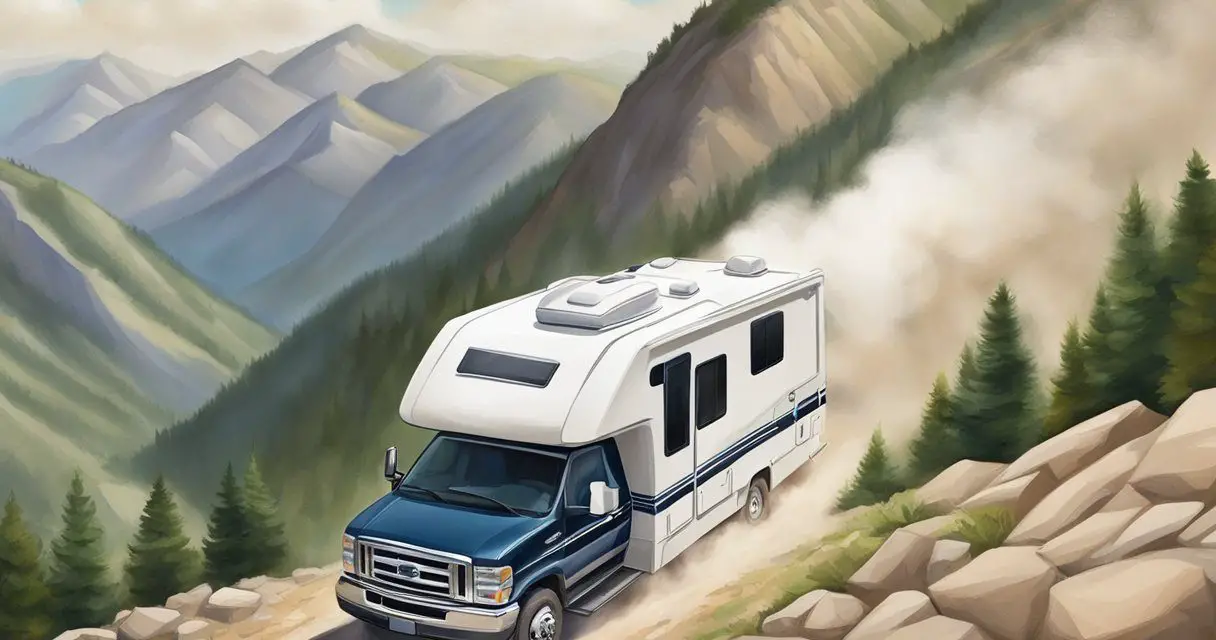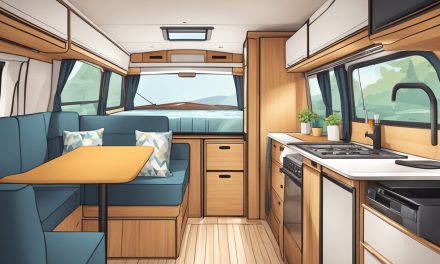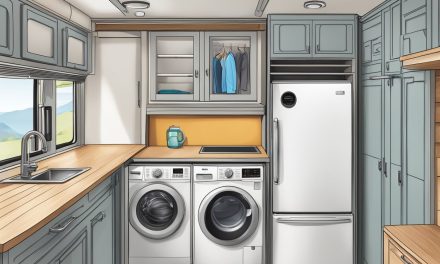Would you like to save this article?
When you own an RV, one of the essential tasks during a trip is making sure your vehicle is level. This becomes especially important if you prefer to use manual leveling methods instead of relying on automatic systems. Most people prefer automatic leveling systems.
However,choosing manual leveling offers more control and can prevent potential issues sometimes associated with automated systems.
You’ll find that manually leveling your RV not only gets you more involved with the setup process but can also enhance your camping experience in various ways. While automatic systems offer convenience, sticking with the manual approach might just be the better choice for those who enjoy a hands-on role in managing their rig.
1. More Control Over Campsite Adjustments
When you choose to manually level your RV, you have more control over the adjustments that suit your specific campsite.
Manual leveling allows you to make precise changes based on the terrain. You can fine-tune the positioning to match uneven ground, ensuring stability and avoiding unnecessary stress on the RV’s structure.
By manually leveling, you can address particular campsite features like slopes or dips. This hands-on approach means you’re not relying solely on technology, which might not account for every unique situation you encounter.
Having this control means you can optimize comfort without compromising on safety. By aligning your RV according to your comfort and requirements, you’re set for a more pleasurable camping experience.
2) Avoids Tech Malfunctions at Remote Locations
When you’re exploring remote areas with your RV, technical issues can become a real headache. Relying on manual leveling eliminates the worry of your automatic system malfunctioning when you’re far from help. In remote spots, you’ll appreciate the simplicity and reliability of leveling your RV by hand.
Automatic systems can suffer from power issues, dead batteries, or blown fuses. These troubles can leave you stuck trying to figure out how to fix a malfunction, often without cell service or nearby assistance. With manual leveling, you’re in complete control and can adjust as needed without relying on technology.
In remote locations, troubleshooting a tech failure can be time-consuming and frustrating. Manual leveling ensures you avoid the hassle of dealing with tech glitches out in the wilderness. It’s just you, the RV, and the basics—giving you peace of mind and more time to enjoy your adventure.
3. Less Maintenance Compared to Electronics
When you’re leveling your RV manually, you’re using simple tools that don’t need a lot of upkeep. You’re not worrying about sensor issues or electronic glitches. It’s all plain mechanics, which means fewer things can go wrong.
Manual leveling doesn’t involve hydraulic fluid checks or electronic calibrations. A good set of leveling blocks or simple ramps often does the trick. With less reliance on complex systems, your setup stays straightforward and fuss-free.
Electronic systems may promise convenience, but they can sometimes require troubleshooting that manual methods avoid. If a component breaks in a manual system, it’s usually easy to identify and fix. This simplicity can save you time and potential repair costs.
By sticking with manual leveling, you might free yourself from the need for professional maintenance. This approach allows you to know exactly how your leveling process works, giving you more control.
4) Saves Energy for Other Essential Uses
When you’re out camping, every bit of energy counts. By leveling your RV manually, you cut down on the power usage that automatic systems require. This is a smart way to conserve battery life or generator fuel, ensuring you’ve got more power available for things like cooking or heating.
Manual leveling means you won’t be relying on the RV’s electrical system to power an automatic leveling unit, which can drain significant energy. With manual tools, you can often set up quickly without much fuss. You’ll find yourself with more energy left for your devices, lights, and other comforts.
In a pinch, saving that extra bit of energy can make all the difference, especially when you’re far from electrical hookups. Every watt saved by cranking those jacks by hand means extra hours of light or a few more precious phone charges. This way, you’re maximizing your resources, keeping your trip running smoothly.
5. Keeps You Engaged with Your RV
When you manually level your RV, you form a closer bond with your vehicle. You’re getting hands-on with a key part of the setup process, learning its quirks and nuances. This involvement can create a deeper understanding of its mechanics and help in maintaining your RV in the long run.
Every time you level your RV manually, you stay alert to its condition. You notice changes, like if it’s taking longer than usual or if a particular spot is trickier. This keeps you attentive to any potential maintenance needs before they become issues.
By keeping your manual leveling routine, you develop your problem-solving skills. You adapt to different terrains, weather conditions, and campsite layouts. This can make each camping experience unique and more rewarding. Engaging directly can also boost your confidence in handling your RV.





